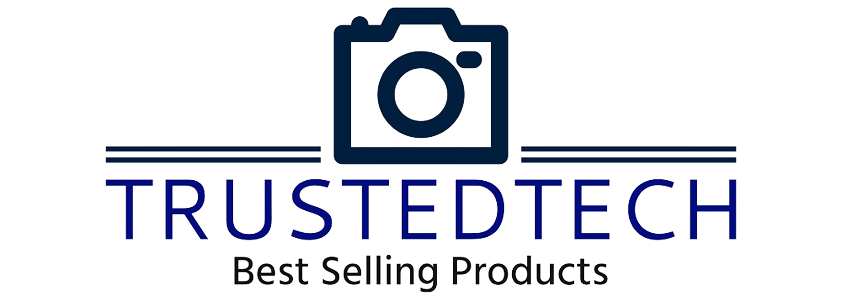
[ad_1]
We’re using, wearing and embedding many wireless ‘smart’ devices that dramatically alter the way we live and work, but we do so often with minimal human involvement.
Billions of devices or ‘things’– from consumer electronics to life sustaining pacemakers to appliances in the home and family cars on the road – are today being programmed to operate autonomously or to connect and exchange data directly, device-to-device.
As the explosion of Internet-enabled computing devices and applications for smart services in areas such as health care, transportation, industrial automation, emergency response, law enforcement, and many more sectors continues, Canadian businesses and organizations must make informed decisions about this new standard of everyday computing to help improve their efficiency, productivity and competitiveness.
The desire to reduce barriers for businesses and individuals wishing to embrace new technology is great, yes, but the need to create open and interoperable IoT environments with privacy-preserving protocols and access-control techniques is just as strong.
Ontario Tech University’s Dr. Khalid Elgazzar has been reappointed as Canada Research Chair in the Internet of Things (IoT) and AI developments
That’s why news of Ontario Tech University researcher Dr. Khalid Elgazzar being named as the Canada Research Chair (CRC) in the Internet of Things (IoT) drew so much attention: not only does the announcement come in this, the 20th anniversary of Ontario Tech U, but Dr. Elgazzar is known as the country’s leading IoT expert: he’s published more than 130 articles in leading journals and premier international venues.
He’s enthusiastic about the promise and potential of the Internet of Things (IoT) and AI developments while being cognizant of some perils and pitfalls:
“[T]here are so many vital developments unfolding in the Internet of Things,” Dr Elgazzar outlined, and there are vital reasons to “make informed choices about how these technologies can make our lives safer, smarter and more productive. We also need to be wary of how IoT adoption requires addressing all user-privacy concerns and all security considerations for authorization control systems.”
Along those lines, Dr Elgazzar’s work has long focussed on developing ‘Technology with a Conscience’, which a guiding philosophy for him and Ontario Tech itself: “[W]e introduced the term ‘Technology with a Conscience’ several years ago,” he recalled in an email exchange with WhatsYourTech. “This vision underscores our commitment to addressing the potential pitfalls of technology, from inadvertent privacy breaches to data misuse.
“Central to our work is the integration of ethics, ensuring user and data privacy from the foundational level. We are committed to building a future where innovation thrives, yet everyone remains shielded from the potential negative implications of technology.”
Recognizing his long-standing record of research, achievement, and discovery when linking our physical infrastructure with technological innovation, the Canadian government has renewed the Ontario Tech researcher’s CRC appointment for a new five-year term. Dr. Elgazzar is one of 11 CRCs at Ontario Tech recognized by the CRC program as a leading national expert in their research discipline (10 CRCs are currently active, one is in-development).
By leveraging the IoT research, artificial intelligence and real-time data analytics conducted by Dr. Elgazzar and the Ontario Tech teams, businesses can gain deeper insights into customer behaviours and preferences, while helping to stimulate Canada’s technology sector in the creation of new products, services and business models that truly help people better carry out their daily activities in many real-life situations.
Dr. Elgazzar’s latest research is focused on technologies that combine real-time sensing with advanced AI-driven data analytics into applications to collect, analyze, and share data to improve the efficiency and effectiveness of city services, bringing so-called ‘smart cities’ into reality using advanced technology.
It’s topic of interest both around the world and closer to home, where some recall efforts by Google/Alphabet to create a smart city on Toronto’s waterfront, dubbed Quayside.
Asked about such recollections and failed attempts, Dr. Elgazzar directly stated that “It’s crucial to recognize that technology alone cannot forge a smart city.
“The journey to a comprehensive smart city is multifaceted, involving a myriad of stakeholders, from city administrations, public services, and transportation to education sectors and local government agencies. This complexity often results in isolated smart city projects rather than an interconnected smart city ecosystem.”
It’s essential to address, through research and education, communication and consultation, why many smart city initiatives haven’t achieved their full potential to date, he noted.
“Genuine collaboration is required among all stakeholders, and it’s incumbent on everyone to align their goals and work cohesively,” Dr. Elgazzar elaborated. “[A]s we leverage technology to improve urban living, safeguarding citizen privacy becomes paramount. Before data collection or sharing can occur, robust protection measures must be in place to instill confidence among the public.”
As one of his new core research initiatives, Dr. Elgazzar will collaborate to make public sensing (the collection and analysis of information about the environment, infrastructure, health, or other aspects of public interest) a mainstream everyday standard. Over his career, he has worked with many community and industrial partners to develop new solutions to scientific challenges and demonstrate the role of advanced technology in real-life applications. In many cases these efforts resulted in commercial products or successful prototypes.
But again, he reminds, technology itself does not make a city smart.
“For a smart city to truly succeed, residents must also recognize the balance between sharing essential information for improved services and preserving their privacy. It becomes a matter of evaluating benefits against potential risks. This emphasizes the need for policymakers and tech developers to earn the trust of the public. It’s here that the concept of ‘technology with a conscience’ offers a promising solution, ensuring innovation is balanced with ethical considerations for the greater good.”
-30-
[ad_2]



